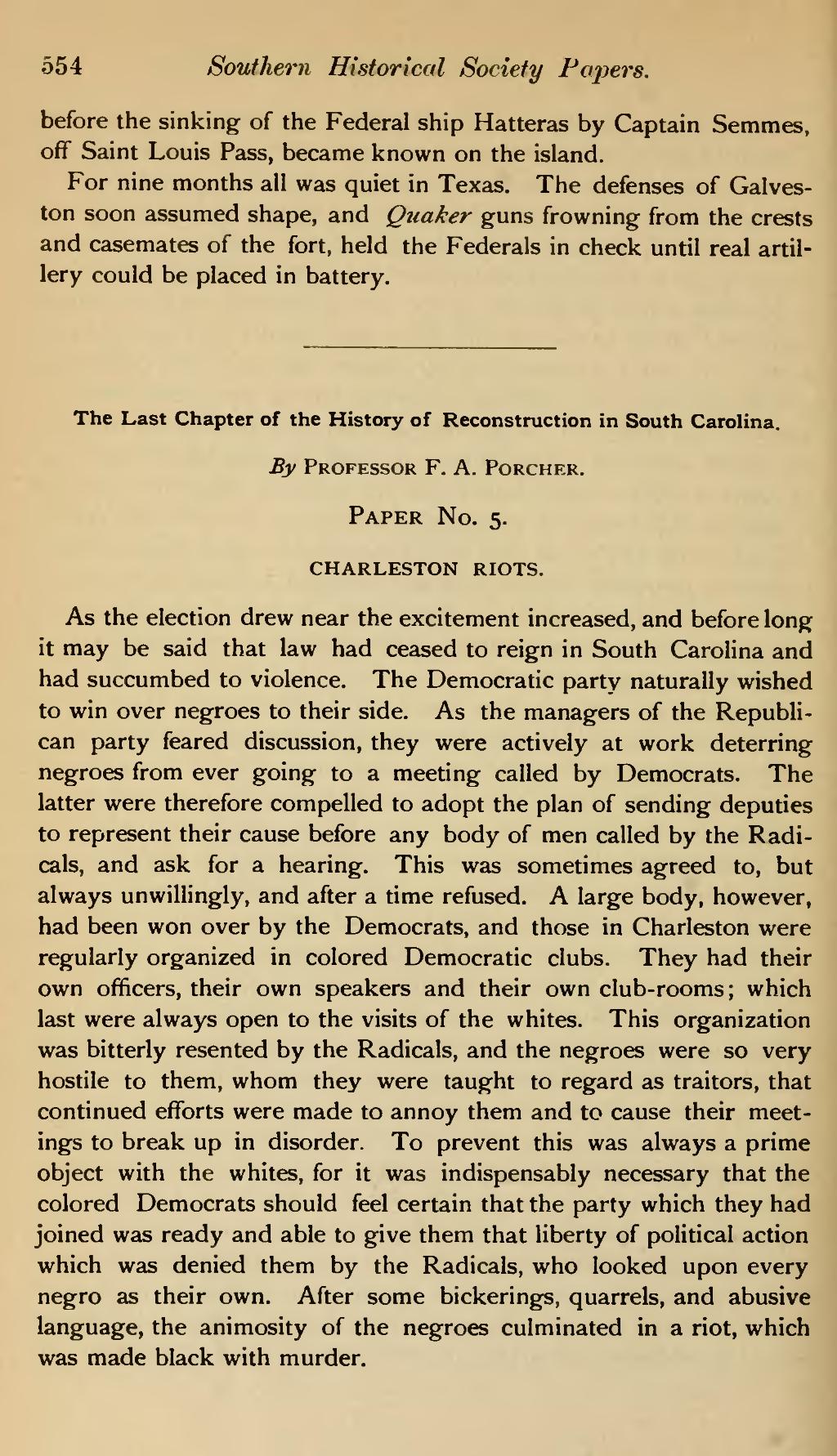554 Southern Historical Society Papers.
before the sinking of the Federal ship Hatteras by Captain Semmes, off Saint Louis Pass, became known on the island.
For nine months all was quiet in Texas. The defenses of Galves- ton soon assumed shape, and Quaker guns frowning from the crests and casemates of the fort, held the Federals in check until real artil- lery could be placed in battery.
The Last Chapter of the History of Reconstruction in South Carolina.
By Professor F. A. Porcher.
Paper No. 5.
charleston riots.
As the election drew near the excitement increased, and before long it may be said that law had ceased to reign in South Carolina and had succumbed to violence. The Democratic party naturally wished to win over negroes to their side. As the managers of the Republi- can party feared discussion, they were actively at work deterring negroes from ever going to a meeting called by Democrats. The latter were therefore compelled to adopt the plan of sending deputies to represent their cause before any body of men called by the Radi- cals, and ask for a hearing. This was sometimes agreed to, but always unwillingly, and after a time refused. A large body, however, had been won over by the Democrats, and those in Charleston were regularly organized in colored Democratic clubs. They had their own officers, their own speakers and their own club-rooms; which last were always open to the visits of the whites. This organization was bitterly resented by the Radicals, and the negroes were so very hostile to them, whom they were taught to regard as traitors, that continued efforts were made to annoy them and to cause their meet- ings to break up in disorder. To prevent this was always a prime object with the whites, for it was indispensably necessary that the colored Democrats should feel certain that the party which they had joined was ready and able to give them that liberty of political action which was denied them by the Radicals, who looked upon every negro as their own. After some bickerings, quarrels, and abusive language, the animosity of the negroes culminated in a riot, which was made black with murder.
